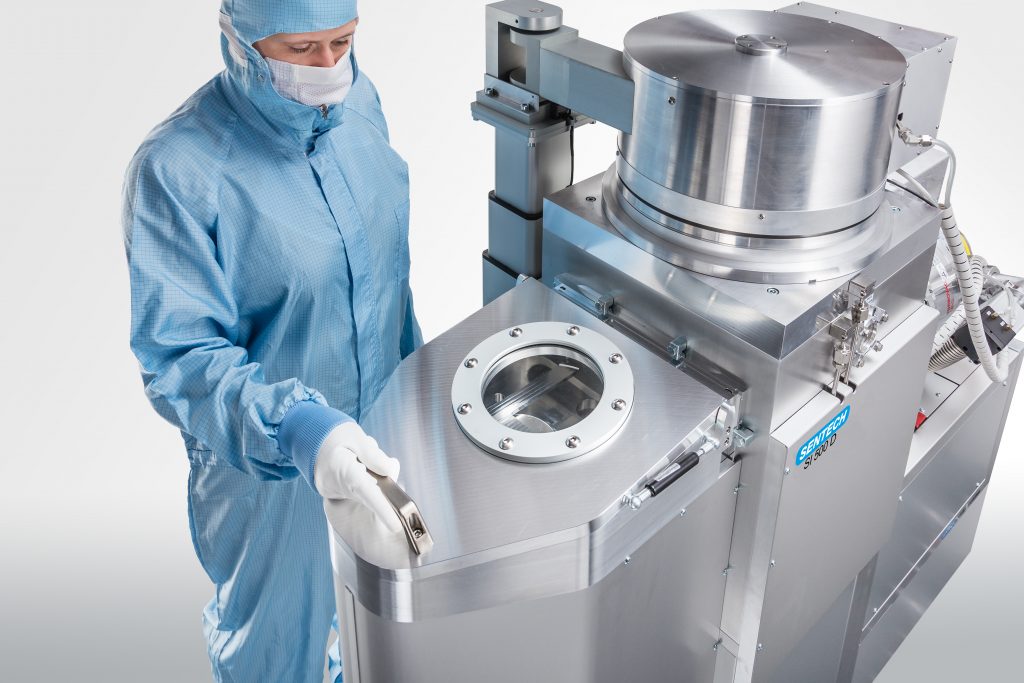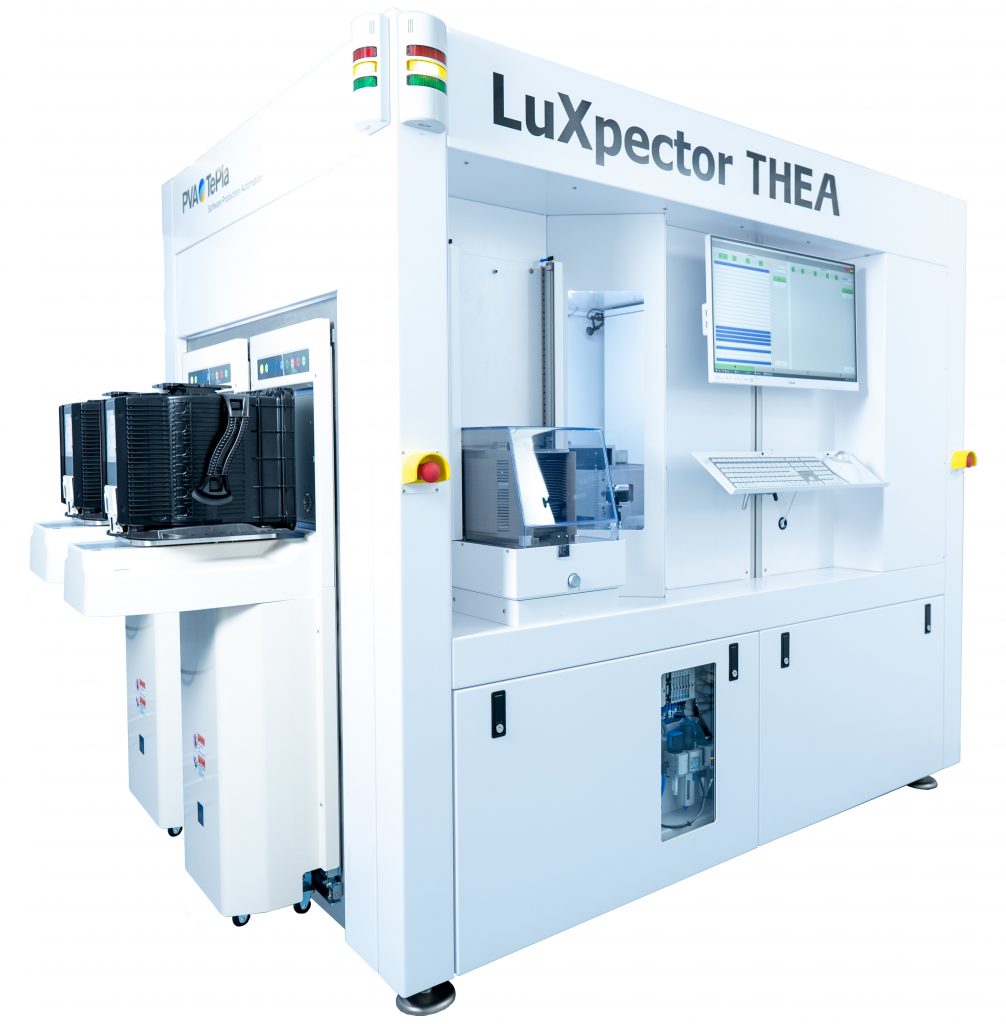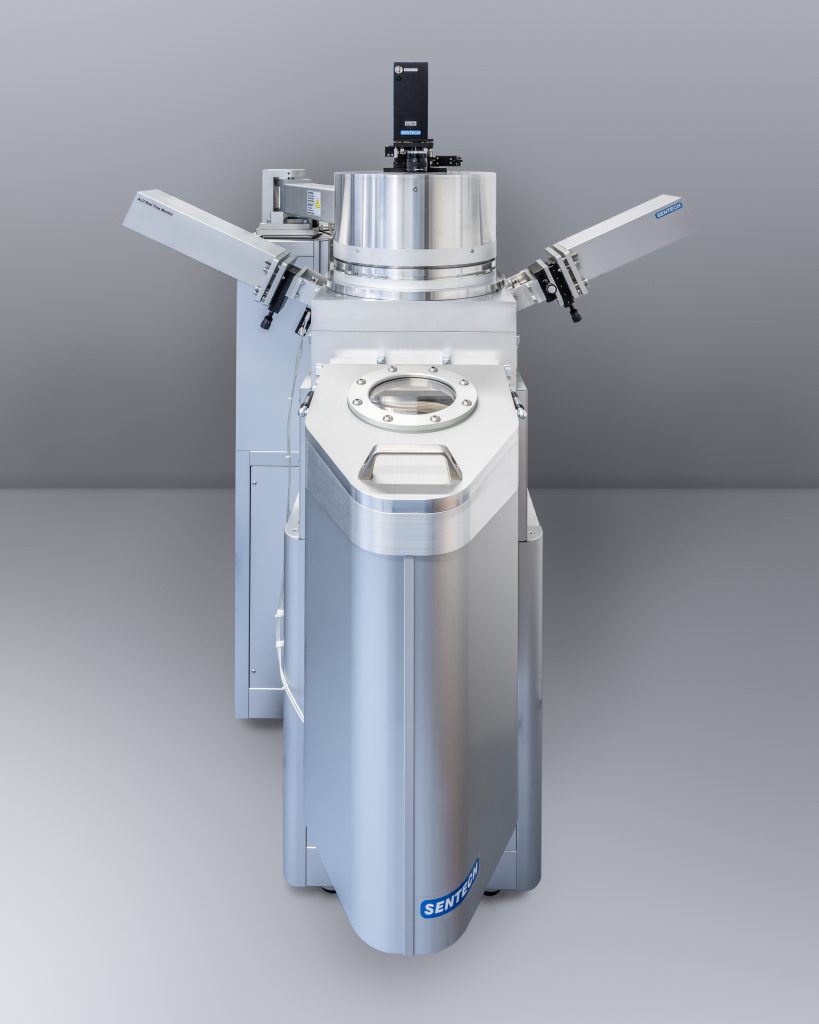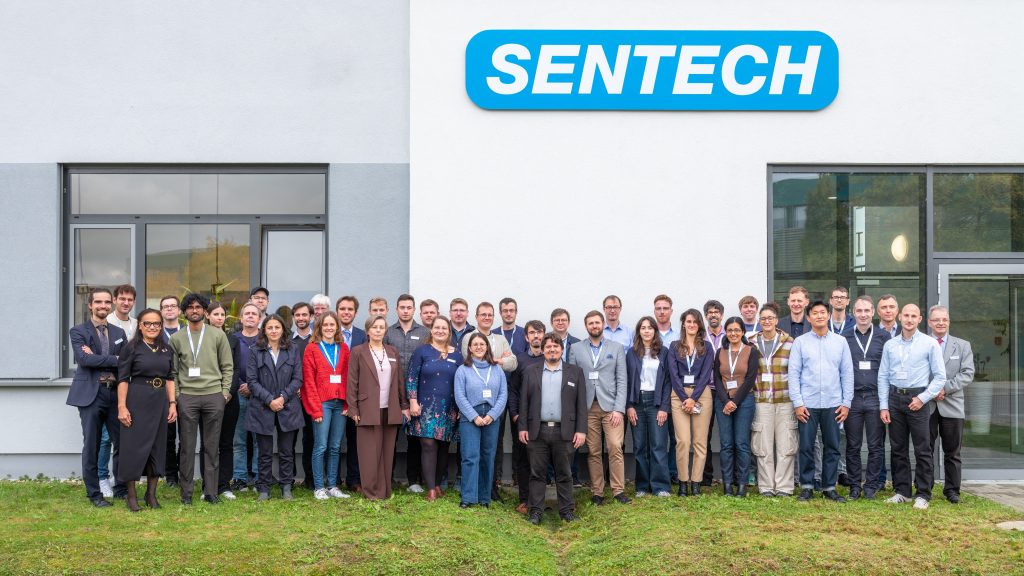Key features & benefits
Fast measurement
The operation of the SENTECH SENresearch 4.0 in-situ spectroscopic ellipsometers (SER 801 and SER 801 DUV) are extremely user-friendly and fast tools. Measure the entire ellipsometric spectrum between 200 nm and 1000 nm or a user-defined spectral range in just one click with the results displayed within just a few seconds.
Highly sensitive, low noise, UV-enhanced detection system
The UV concept is designed for low stray light, high UV sensitivity, and the best S/N ratio even for low-reflecting samples like AR coatings.
Easily mountable for combined in-situ and ex-situ usage
The SENTECH SENresearch 4.0 in-situ spectroscopic ellipsometers (SER 801 and SER 801 DUV) are configurations of the SENresearch 4.0 spectroscopic ellipsometer. It replaces the goniometer and sample stage with the mechanics and windows to attach the ellipsometer arms to a typical process chamber. Only the optical components are attached to the optical arms, creating very stable and reliable operation.

The SENTECH SENresearch 4.0 in situ spectroscopic ellipsometers (SER 801 and SER 801 DUV) are based on the Step Scan Analyser (SSA) principle and use fast CCD array detection to access full (Ψ, Δ)-spectra.
Flexibility and modularity
The SENresearch 4.0 in-situ spectroscopic ellipsometers are measurement tools to monitor etching and deposition processes with a high spectral resolution to generate endpoints or to characterise layers.
The full spectral range from 200 nm / 240 nm to 1000 nm and the high spectral resolution of the SENTECH SENresearch 4.0 in situ spectroscopic ellipsometers (SER 801 and SER 801 DUV) combined with high detection speed make them the ideal tools for in-situ process monitoring. The UV concept is designed for low stray light, high UV sensitivity, and the best S/N ratio even for low-reflecting samples like AR coatings.
The SENTECH SENresearch 4.0 in situ spectroscopic ellipsometers (SER 801 and SER 801 DUV) are based on the Step Scan Analyser (SSA) principle using fast CCD array detection to access full (Ψ, Δ)-spectra. contain two measurement setups:
Polariser – Sample – Analyser mode (PSA) and Polariser – Sample – Compensator – Analyser mode (PSCA) ensure the measurement of the degree of polarisation and compensate for depolarisation effects caused by non-uniform samples, rough surfaces, limited spectral resolution, and focusing angle. The Step Scan mode allows the highest dynamic range from ultralow reflecting samples to high reflecting mirrors.
Using a compensator, the ellipsometric angle Δ can be measured in the whole range from 0° – 360° with high accuracy and precision. The compensator is also highly stabilised against environmental temperature changes to provide the lowest drift and measurement error even at Δ around 0°.
Find out more about why the SENTECH SENresearch 4.0 tabletop is also the right choice for ex-situ use.
Configurations:

DUV – VIS
190 – 1,000 nm
240 – 1,000 nm
NIR with Diode-Array
190 – 1,700 nm
240 – 1,700 nm
NIR with FTIR
190 – 2,500 nm
190 – 3,500 nm
240 – 2,500 nm
240 – 3,500 nm

- Manual goniometer
- Motorised Pyramid Goniometer
- In situ, in line, and desktop
- Reflectometer

- Mapping
- Turntable for anisotropic samples
- 2C for full Mueller matrix measurement
- Video based auto-align
- Microspots
- Liquid cells
- Heating and cooling stage
- Transmission holder






